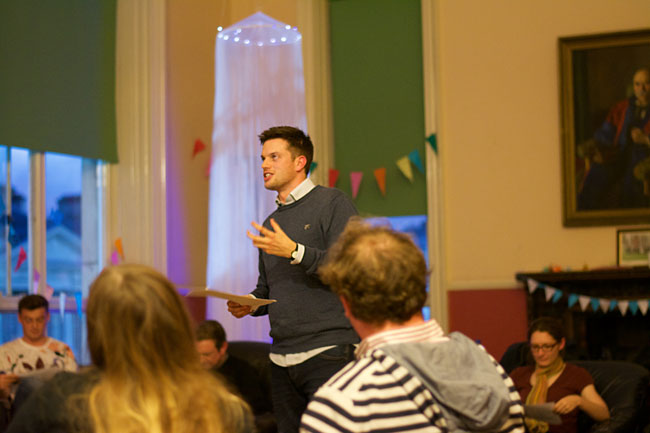Last night, DU History invited some of the history department’s new members to talk about some of the most deplorable and cunning villains in history. Dr Mahon Murphy, Dr Katja Bruisch, Dr Molly Pucci and Dr Thomas Smith each took to the floor of the College Historical Society’s (the Hist) conversation room in the Graduates Memorial Building (GMB), to argue their case for the most dreadful figure in history. The debates ranged from the infamously villainous Josef Stalin, to some more obscure villains that have remained free from the judgment of historians, such as Pope Honorius III.
Murphy started the debate with a colourful depiction of the British soldier and intelligence agent Richard Meinertzhagen (1878 – 1967), detailing an adventurer with a license to kill and the courage of a lion. Murphy argued that the villainous nature of this seemingly heroic figure lies in his duplicitous nature. Meinertzhagen had previously been described as one of the last great adventurers of the imperial world. However, due to the work of inquisitive historians, it has emerged that these tales were all fabrications or the stories of others. The image Murphy left me with was one of Professor Lockhart of the Harry Potter series – a bumbling idiot roaming a world and taking advantage of the large imperial word with underdeveloped telecommunications, taking tales of heroes and claiming them as his own.
The second speaker, Bruisch, continued the evening with an argument constructed in the style of folklore in which the anti-hero and the innocent are in direct conflict with one another. This tale detailed the story of Russian dictator Josef Stalin (1878 – 1953) and Bolshevik revolutionary Nikolai Bukharin (1888 – 1938) and their direct conflict with one another. While no one needs to be convinced of Stalin’s villainous character, Dr Bruisch provided an interesting new lens through which an audience could understand the complete evil which possessed Stalin.
Pucci continued looking at the evil that permeated communist Russia, arguing that the secret police, or the NKVD, were in fact the villains of Stalin’s tyrannical regime. Pucci created a convincing argument, starting by comforting us with the image of the American “cop” in his navy uniform, adorned with medals – the image of justice – and continued to replace that image with one of a ruthless, violent policeman, that would not hesitate to use violence in order to achieve a higher rank in a corrupt system. Pucci argued that a world in which the very people charged to bring about peace and justice are instead criminals is a world in which the police are in fact villainous criminals. This interesting spin on the idea of a villain proved thought provoking.
Finally, Smith looked at the slightly ambiguous villain Pope Honorius III (1150 – 1227). Smith gave a comical argument that the medieval Pope (who is ranked eighth in the list of the most-evil popes) should be brought to justice, almost 800 years after his villainous affairs. Honorius III is not only accredited as the author of the Grimoire, a book of evil magic, but he (like Meinertzhagen) was duplicitous in his official dealings as Pope. However, this was largely ignored by scholars throughout history, and Smith debated that is was almost villainous that he escaped without any blemish to his character, until recent studies.
Ultimately, Murphy’s depiction of Richard Meinertzhagen was voted the most villainous figure discussed last night. The debate left me with a thought of the nativity of historians, and the damage a lack of critical thinking can do. The legacies of both Richard Meinertzhagen and Honorius III were forever altered by the investigation of critical historians. The enjoyable debate was thought-provoking as well as entertaining.







